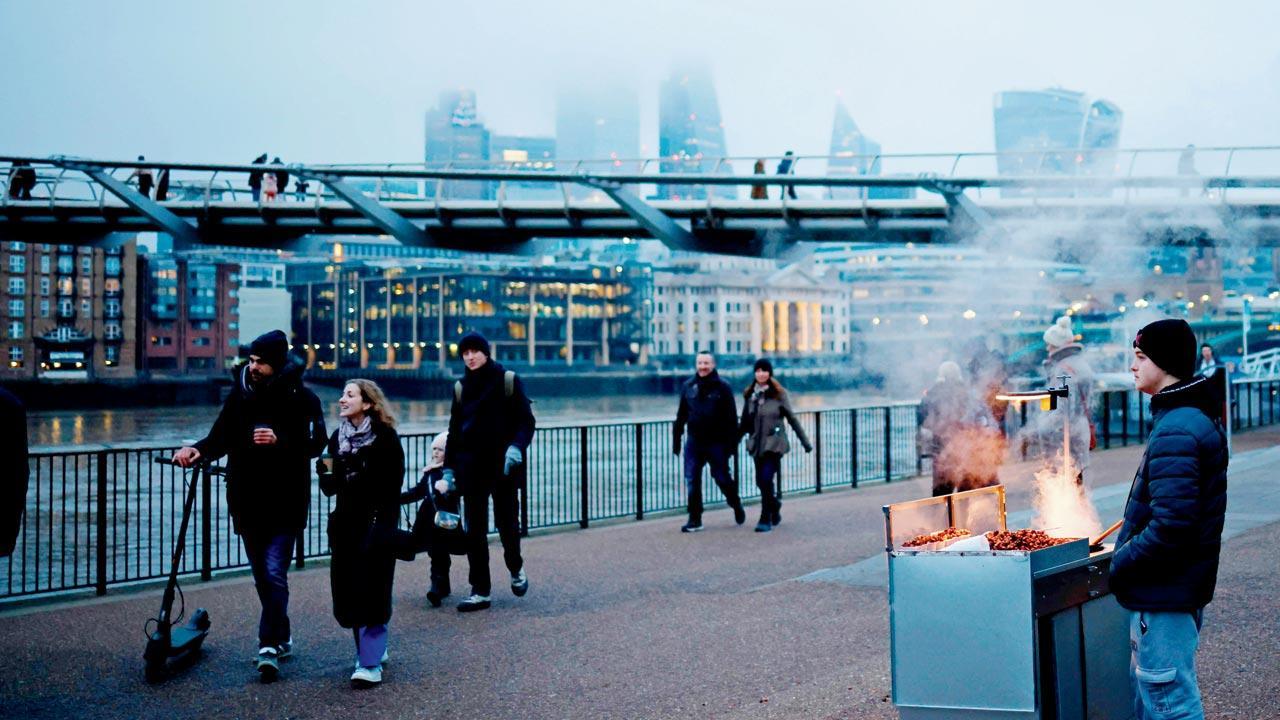British citizens will no longer have the automatic right to live and work in the EU, and vice versa. People who want to cross the border to settle will have to follow immigration rules and need qualifications that are recognised

Pedestrians walk past a chestnut seller in London. Pic/AFP
So far, the large majority of British and EU citizens have not felt the realities of Brexit. Though the UK left the European Union on Jan. 31, it follows the bloc's rules until the end of 2020 as part of a transition period to the new economic ties. That's all set to change.
ADVERTISEMENT
What's changing?
Under the divorce deal agreed by the two sides on Dec. 24, the roughly 1 million British citizens who are legal residents in the EU will have broadly the same rights as they have now. The same applies to over 3 million EU citizens living in the UK.
But British citizens will no longer have the automatic right to live and work in the EU, and vice versa. People who want to cross the border to settle will have to follow immigration rules and need qualifications that are recognised.
A British graduate won't be able to walk up to a shop/bar in EU nations and ask for a job anymore without a visa. The same applies for European graduates. Larger businesses will also find it far more difficult and costly to hire people from the other side.
 Subscribe today by clicking the link and stay updated with the latest news!" Click here!
Subscribe today by clicking the link and stay updated with the latest news!" Click here!






